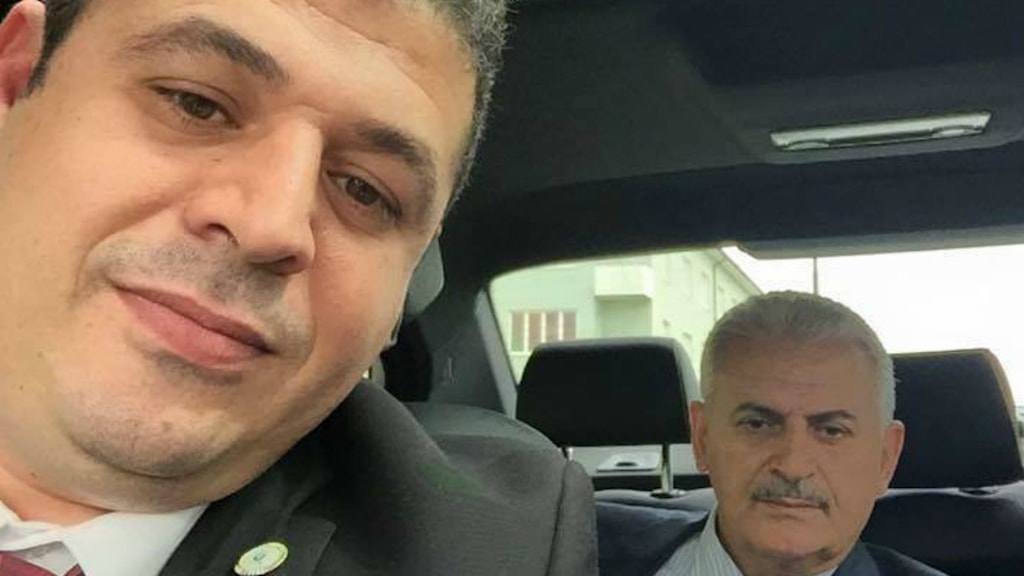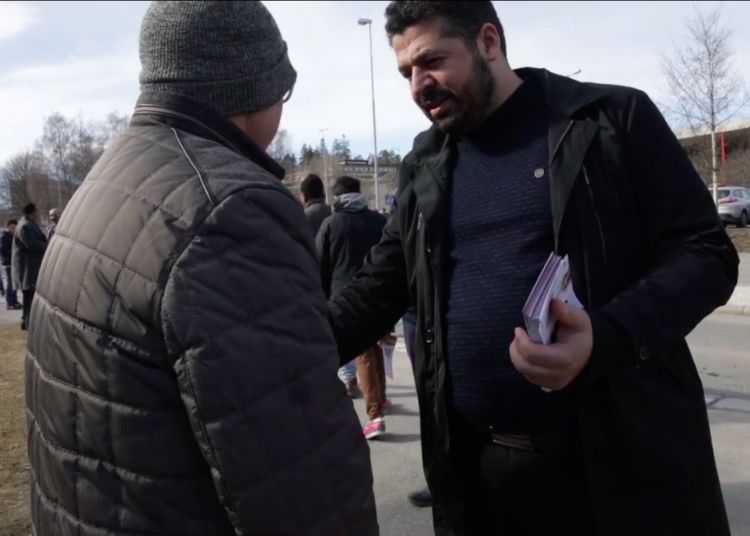Levent Kenez/Stockholm
Turkish Foreign Minister Mevlüt Çavuşoğlu, who visited Stockholm for the annual Ministerial Council of the Organization for Security and Co-operation in Europe (OSCE) held December 2-3, met with a controversial figure who spied on Turkish President Recep Tayyip Erdoğan’s critics in the country.
On December 1 Çavuşoğlu received representatives of the Swedish branch of the Union of International Democrats (UID), the European organization of the ruling Justice and Development Party (AKP), led by its regional president Özer Eken, at the Turkish ambassador’s residence. He later announced the meeting on social media, saying, “We will continue to provide all kinds of support to protect the rights of our citizens abroad and to find solutions to their problems.”

The fact that no organizations other than the UID were invited confirms that the meeting was a party gathering rather than one for the public. Although it’s long been known that the UID is the European arm of the AKP, party officials and ministers who meet with UID delegations in Europe at Turkish diplomatic missions deliberately present them as open-to-all meetings with Turkish citizens abroad. As a side note, unlike many countries in Europe, the Islamist AKP receives far less support in Sweden due to Kurdish, Alevi and secular groups constituting the majority of the voters.
Eken came to the agenda for the first time in 2017 with a spying scandal uncovered by the state-run Sveriges Radio (SR). In an audio recording released by SR, Özer is heard threatening a businessman who was sympathetic to the Gülen movement, a vocal critic of Erdoğan, to get him to report what members of the Gülen movement were doing in Sweden and to give him the names of those who had fled to the country following an abortive coup in Turkey in 2016 that sparked a witch-hunt against critics. Eken threatened the businessman with the arrest of his wife, who was in Turkey at the time. Özer is heard telling the businessman, “If you help the state, the state will also help you.” He also ordered the man to bring him concrete information.
In his first reaction to the accusations, Eken claimed the tape was doctored; however, he later had to admit that the recording was of him but denied any spying.
A few days after the scandal, the prestigious Dagens Nyheter daily shot footage of Eken disseminating AKP propaganda in a mosque. The news story also stated that Erdoğan’s opponents were profiled and that this information was transmitted to Turkey through nine mosques run by imams whose salaries were paid by the Turkish state.

According to the Swedish media, the Swedish Foreign Ministry had conveyed its discomfort to the Turkish Embassy, adding that spying on dissidents in Sweden would not be tolerated.
Nordic Monitor reported last year that the Turkish Embassy had secretly profiled critics of the government in 2017 and 2018 and informed headquarters in Ankara. The government used the information collected to forge a sham criminal case against Nordic Monitor Editor-in-Chief Abdullah Bozkurt and 27 other critics of the Turkish government who live in Sweden. Bozkurt has long been on the Erdoğan government’s target list. He was attacked near his home in Stockholm on September 24, 2020. Shortly after he left his apartment, he was assaulted by three men who knocked him to the ground, punched him and then fled the scene. Bozkurt sustained injuries to his face, head, arms and legs and was treated in an emergency ward. The police investigation into the incident is still pending.
The people who were targeted by the embassy included educators, representatives of local associations, professionals and businesspeople who live in Stockholm, Gothenburg, Helsingborgs, Norsborg, Malmö and other cities in Sweden. It is very likely that the profiling list was created with the help of consular records and names conveyed by Özer and his associates.

Foreign Minister Çavuşoğlu confirmed systematic spying on Turkish government critics on foreign soil by Turkish diplomatic missions in February 2020. Çavuşoğlu said Turkish diplomats assigned to embassies and consulates have officially been instructed by the government to conduct such activities abroad. “If you look at the definition of a diplomat, it is clear. … Intelligence gathering is the duty of diplomats,” Çavuşoğlu told Turkish journalists on February 16, 2020, following the Munich Security Conference, adding, “Intelligence gathering and information collection are a fact.”
Eken is a close friend of Erdoğan confidant Metin Külünk, who was investigated for his links to armed and radical Islamist groups in Turkey and helped establish the UID in Europe. Külünk had come to Sweden several times and met with Özer.

Özer recently took part in the UID delegation that met with President Erdoğan in October in İstanbul. Erdoğan had called Özer’s mother, who was sick, during the meeting and said he hoped she’d get well soon. Erdoğan also advised UID representatives to be more aggressive.
The UID was originally founded in Cologne in 2004 as the Union of Turkish Democrats of the European Union (UETD) and changed its name to UID in order to improve its image, which had deteriorated dramatically due to incidents of violence its members were involved in, at a convention in Sarajevo attended by President Erdoğan as keynote speaker in 2018, reflecting the ambitions of the group to expand its operations beyond Europe. It currently has 152 offices in 17 countries: Austria, Belgium, Bosnia and Herzegovina, Czechia, Denmark, Finland, France, Germany, Hungary, Italy, Luxembourg, the Netherlands, North Macedonia, Norway, Sweden, Switzerland and the United Kingdom.












